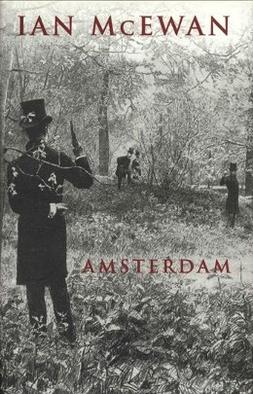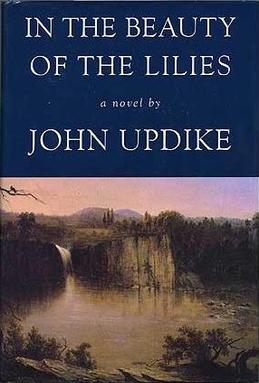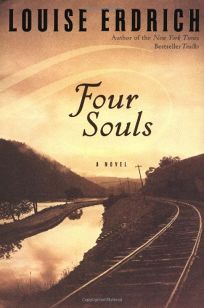
The Human Stain is a novel by Philip Roth, published May 5, 2000. The book is set in Western Massachusetts in the late 1990s. Its narrator is 65-year-old author Nathan Zuckerman, who appears in several earlier Roth novels, including two books that form a loose trilogy with The Human Stain,American Pastoral (1997) and I Married a Communist (1998). Zuckerman acts largely as an observer as the complex story of the protagonist, Coleman Silk, a retired professor of classics, is slowly revealed.

Sabbath's Theater is a novel by Philip Roth about the exploits of 64-year-old Mickey Sabbath. It won the 1995 U.S. National Book Award for Fiction. The cover is a detail of Sailor and Girl (1925) by German painter Otto Dix.

The Ghost Writer is a 1979 novel by the American author Philip Roth. It is the first of Roth's novels narrated by Nathan Zuckerman, one of the author's putative fictional alter egos, and constitutes the first book in his Zuckerman Bound trilogy. The novel touches on themes common to many Roth works, including identity, the responsibilities of authors to their subjects, and the condition of Jews in America. Parts of the novel are a reprise of The Diary of Anne Frank.

Arthur Phillips is an American novelist. His books include Prague (2002), The Egyptologist (2004), Angelica (2007), The Song Is You (2009), The Tragedy of Arthur (2011), and The King at the Edge of the World (2020).

Amsterdam is a 1998 novel by British writer Ian McEwan, for which he was awarded the 1998 Booker Prize.

Michiko Kakutani is an American writer and retired literary critic, best known for reviewing books for The New York Times from 1983 to 2017. In that role, she won the Pulitzer Prize for Criticism in 1998.

Breathing Lessons is a Pulitzer Prize–winning 1988 novel by American author Anne Tyler. It is her eleventh novel and won the 1989 Pulitzer Prize for Fiction.

When We Were Orphans is the fifth novel by Nobel Prize-winning British author Kazuo Ishiguro, published in 2000. It is loosely categorised as a detective novel. When We Were Orphans was shortlisted for the 2000 Booker Prize.

In the Beauty of the Lilies is a 1996 novel by John Updike. It takes its title from a line of the abolitionist song "The Battle Hymn of the Republic." The novel received the 1997 Ambassador Book Award for Fiction.

The Innocent is a 1990 novel by British writer Ian McEwan. It received positive reviews from book critics and is considered by some to be one of his best novels.

Exit Ghost is a 2007 novel by Philip Roth. It is the ninth, and last, novel featuring his character Nathan Zuckerman.
Aravind Adiga is an Indian writer and journalist. His debut novel, The White Tiger, won the 2008 Man Booker Prize.

The White Tiger is a novel by Indian author Aravind Adiga. It was published in 2008 and won the 40th Booker Prize the same year. The novel provides a darkly humorous perspective of India's class struggle in a globalized world as told through a retrospective narration from Balram Halwai, a village boy. The novel examines issues of the Hindu religion, caste, loyalty, corruption, and poverty in India.

Nemesis is a novel by Philip Roth published on October 5, 2010, by Houghton Mifflin Harcourt. It is Roth's 31st book, "a work of fiction set in the summer of 1944 that tells of a polio epidemic and its effects on a closely knit Newark community and its children." In 2012, Philip Roth told an interviewer that Nemesis would be his last novel.

A Gate at the Stairs is a novel by American fiction writer Lorrie Moore. It was published by Random House in 2009. The novel won Amazon.com's "best of the month" designation and was a finalist for the PEN/Faulkner Award and the Orange Prize for Fiction.

The Humbling is a 2014 comedy-drama film directed by Barry Levinson and written by Buck Henry and Michal Zebede, based on the 2009 novel of the same name by Philip Roth. The film stars Al Pacino, Greta Gerwig, Dianne Wiest, Nina Arianda, Dylan Baker, Charles Grodin, Dan Hedaya, Billy Porter, Kyra Sedgwick, and Mary Louise Wilson.

Go Set a Watchman is a novel by Harper Lee that was published in 2015 by HarperCollins (US) and Heinemann (UK). Written before her only other published novel, the Pulitzer Prize-winning To Kill a Mockingbird (1960), Go Set a Watchman was initially promoted as a sequel by its publishers. It is now accepted that it was a first draft of To Kill a Mockingbird, with many passages in that book being used again.

Ideal is a posthumously published 2015 novel by Ayn Rand.

Four Souls (2004) is an entry in the Love Medicine series by Chippewa (Ojibwe) author Louise Erdrich. It was written after The Master Butcher’s Singing Club (2003) and before The Painted Drum (2005); however, the events of Four Souls take place after Tracks (1988). Four Souls follows Fleur Pillager, an Ojibwe woman, in her quest for revenge against the white man who stole her ancestral land. Fleur appears in many books in the series, and this novel takes place directly after her departure from the Little No Horse reservation at the end of Tracks. The novel is narrated by three characters, Nanapush, Polly Elizabeth, and Margaret, with Nanapush narrating all of the odd numbered chapters and Polly Elizabeth taking all but the last two even numbered chapters.

Eat the Document is a 2006 novel by American writer Dana Spiotta about New Left activists in the 1970s and their successors a generation later in the 1990s. Its title refers to a 1972 documentary about Bob Dylan. It was a National Book Award finalist and won the Rosenthal Foundation Award from the American Academy of Arts and Letters.















